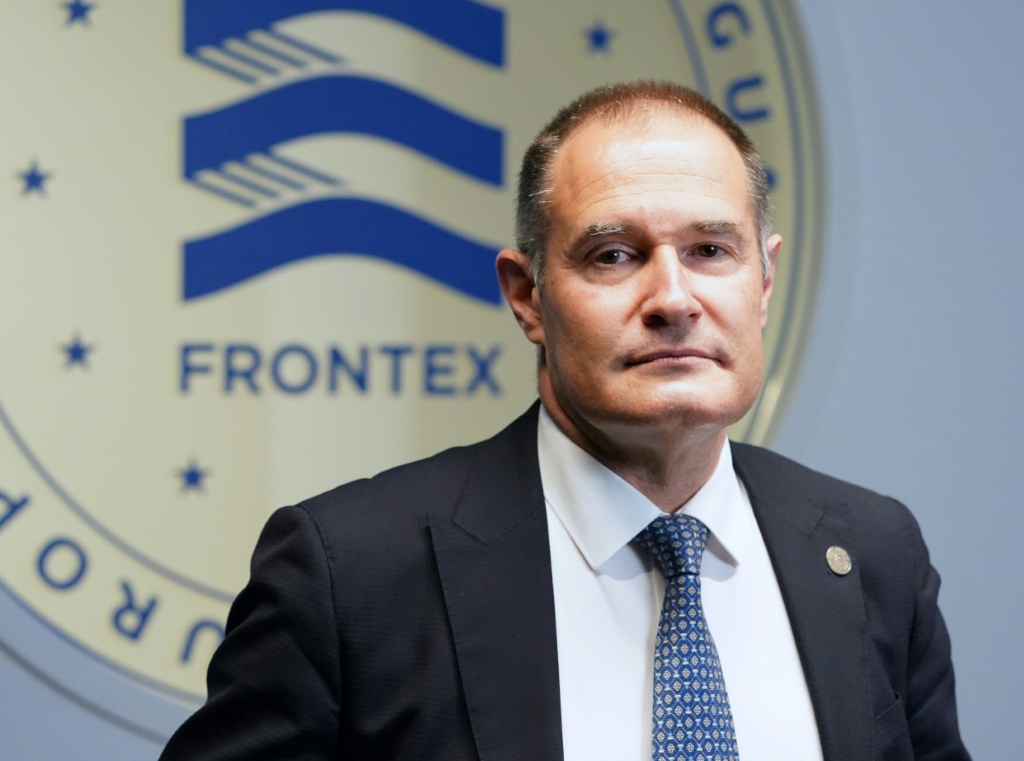Fabrice Leggeri, a figurehead for impenetrable European frontiers who was frequently accused of tolerating illegal “pushbacks” of migrants, has resigned as head of Frontex, the border agency said Friday.

The Frontex board made the announcement after holding a two-day meeting “in view of the European Anti-Fraud Office’s (OLAF) investigations against three staff members including the agency’s executive director,” it said in a statement.
It said Leggeri had offered his resignation on Thursday and the board had “concluded that the employment has therefore come to an end,” adding that deputy executive director Aija Kalnaja would fill in for him.
A German government spokesman said earlier that the boss’ departure “gives the opportunity to fully clear up allegations, to create transparency and make sure all Frontex’s operations respect European law”.
Olaf’s confidential report into Leggeri found he “did not follow procedures, was dishonest with the EU and managed staff badly,” French magazine Le Point reported.
Frontex has repeatedly been accused by aid groups of illegally returning migrants across EU borders — or of turning a blind eye when national authorities themselves carried out such “pushbacks”.
Greece’s land and sea borders with Turkey have been a major focus of such allegations.
On Wednesday, an investigation by French daily Le Monde and investigative outfit Lighthouse Reports found that Frontex recorded pushbacks in Greek waters between March 2020 and September 2021 as “operations to prevent departures (towards Europe), carried out in Turkish waters”.
– ‘Mandate silently changed’ –
Lighthouse Reports and German magazine Der Spiegel published Leggeri’s letter of resignation on Twitter.
In it, he writes that “I give my mandate back to the Management Board as it seems that Frontex mandate on which I have been elected and renewed in June 2019 has silently but effectively been changed”.
In recent months, Leggeri has publicly acknowledged confusion over whether his role was to hinder migrants’ entry to Europe or to oversee national border agencies’ treatment of asylum-seekers.
He said in December that he was “helpless” to work out his true mission.
“Between the imperative not to allow people to cross irregularly and the other, the principle of non-refoulement (which forbids pushbacks) as everyone in need of protection has the right to asylum, how should we act?” he said.
“No one can give me the answer. We’re schizophrenic”.
Leggeri “never understood that Frontex must protect fundamental rights in all its actions,” Dutch European Parliament member Tineke Strik commented on Twitter.
“Next director must make this a top priority.”
European Commission spokeswoamn Anitta Hipper said Frontex’s role was both to protect borders and fundemental rights.
Marked by repeated political scares over migrant arrivals in Europe, Leggeri’s seven years as Frontex chief have coincided with a major increase in resources for the agency.
It is set to grow to 10,000 staff watching the EU’s external borders by 2027.
But the agency also reported last week that irregular crossings into the EU were the highest in six years in January-March this year, with 40,300 entries.
The biggest numbers of irregular crossings were detected coming from the Western Balkans, mostly entering the EU via Greece and Bulgaria.
They accounted for around half of all irregular entries, with the main migrant nationalities being Syrian and Afghan.
Most migrants irregularly entering the EU along its eastern and southern flanks aimed to move on to other EU countries, or to former EU member Britain.






